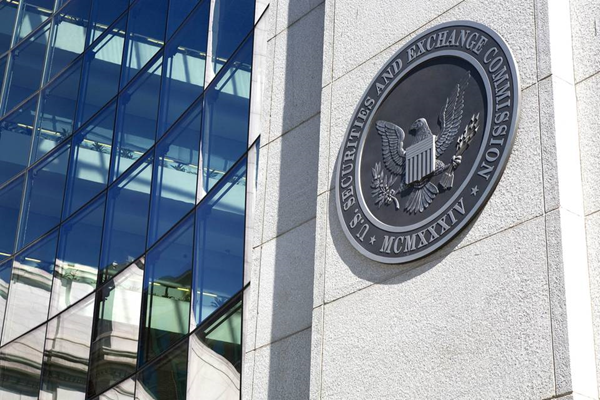|
THE
WALL STREET JOURNAL.
Markets
SEC Probes Activist Funds Over Whether They Secretly Acted in
Concert
Federal securities rules require shareholder activists to disclose
joint campaigns
|

As part of a broader effort to promote transparency, the SEC is
looking at whether certain investors coordinated their efforts
without filing appropriate disclosures. PHOTO: JOSHUA
ROBERTS/BLOOMBERG NEWS |
By
Liz Hoffman,
Aruna Viswanatha, and
David Benoit
June 4, 2015 4:53 p.m. ET
The
Securities and Exchange Commission is investigating whether some
activist investors teamed up to target companies without disclosing
their alliances, potentially in violation of federal securities rules,
according to people familiar with the matter.
The
SEC’s enforcement division has recently opened multiple investigations
and sent requests for information to a number of hedge funds,
according to some of the people. Neither the names of the funds nor
the companies they targeted could immediately be ascertained.
SEC
representatives didn’t immediately respond to requests for comment.
As
part of a broader effort to promote transparency, the SEC is looking
at whether certain investors coordinated their efforts without filing
appropriate disclosures. Federal securities regulations require
investors who jointly agree to buy, sell or vote securities to
disclose those arrangements, and to designate themselves as a group if
they together own at least 5% of a company’s stock or are soliciting
votes from other shareholders. Such formal, disclosed alliances have
included a recent effort by Barington Capital Group LP and Macellum
Capital Management LLC to win board seats at retailer
Children’s Place Inc.
The
rules are meant to keep hedge funds from exercising the influence that
comes with a big stake without incurring obligations that are meant to
level the playing field with smaller shareholders.
The
issue has taken on greater importance as activist hedge funds, which
accumulate stakes in companies and agitate for changes such as stepped
up share buybacks and asset sales, have become a major force in
corporate America in recent years. Activists sometimes tip potential
hedge fund allies to their trading plans, a Wall Street Journal
investigation found last year. The practice isn’t illegal as long as
they don’t coordinate their trades.
The
investigations represent a relatively rare move by the SEC, which has
taken a more hands-off approach to regulating activists. Despite
appeals from companies and their advisers to make the funds’ trading
more transparent, senior SEC officials have expressed little
inclination to do so.
Michele Anderson, who heads the SEC’s office of mergers and
acquisitions, said at a conference in March that changing the
regulations on activist disclosures has proved to be “like peeling an
onion,” where efforts to tackle one issue simply reveal another.
But
the SEC has recently ramped up its scrutiny of trading disclosures
more broadly and the activist-fund investigations are part of that
effort, the people said. The effort includes increased coordination
between the agency’s enforcement division and corporate-finance
officials who review company and investor filings.
The
first results of the initiative came in March, when the SEC charged
eight corporate insiders for failing to update their stock ownership
filings to reflect, among other things, steps they had taken toward
buying the companies in question. The defendants agreed to settle the
cases without admitting or denying the allegations.
|
|
COMING CLEAN
The SEC is
investigating whether activist investors skirted rules on
disclosure of investments made with other funds. Some of the
main hedge-fund disclosure rules:
•
5%
Threshold:
Activists have to disclose once they cross 5% ownership of a
company within ten days
•
Work in Concert:
Activists must disclose any agreements to work with other funds
on an investment. If no single fund owns 5% but the group owns
that much collectively, that must be disclosed.
•
Groups:
Generally a group is considered to exist if the investors have
reached any sort of agreement on how they will vote their shares
or when they will trade the stock.
|
In
a sign of the SEC’s new focus on the issue, the agency in March sent a
letter to activist fund Bulldog Investors LLC about its campaign for
board seats at
Stewart Information Services
Corp., a provider of title insurance. The SEC asked whether Bulldog
had any “agreements or understandings” with Foundation Asset
Management LP, another fund that had run its own proxy fight at the
company.
Bulldog co-founder Phil Goldstein said in an interview that the funds
never made any agreement about trading or voting shares. Scrutiny from
the SEC could chill legal discussions between investors, he said,
adding that it isn’t surprising that underperforming companies would
draw interest from several activists.
“If you go to a Grateful Dead concert, you’re going to find a lot of
Grateful Dead fans,” he said. “They’re not a group. They just like the
same music.”
In
a speech to a gathering of corporate lawyers in March, SEC Chairman
Mary Jo White said the agency was
focused on ensuring that activists’ filings are accurate. She pointed
to the enforcement actions in March as evidence the SEC was policing
the area.
“Our role at the SEC is not to determine whether activist campaigns
are beneficial or detrimental in any given circumstance,” Ms. White
said. “Rather, the agency’s central focus is making sure that
shareholders are provided with the information they need and that all
play by the rules.”
Write to
Liz Hoffman at
liz.hoffman@wsj.com and David
Benoit at
david.benoit@wsj.com
|
